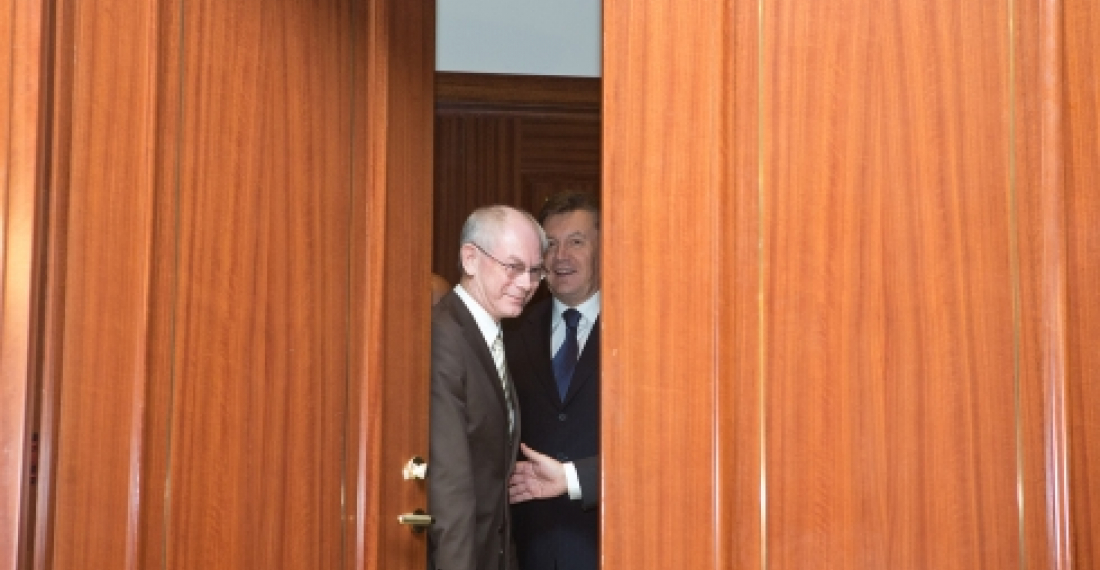The President of the European Council, Herman Van Rompuy and the President of the European Commission Jose Manuel Barroso met last night in Vilnius with the President of Ukraine, Victor Yanukovich, in a last minute attempt to persuade the Ukrainian leader to reverse his last minute decision not to sign an association agreement with the EU. The closed meeting was an opportunity for plain talking by both sides, according to sources.
The door is still open for Ukraine, but only just. Several officials close to the EU have been saying that if Ukraine does not sign the agreement in Vilnius it may be a considerable time before the opportunity can present itself again. The issue has dominated the 3rd Summit of the Eastern Partnership which opened last night in Vilnius. Leaders of the twenty eight EU countries and the six Eastern neighbours are participating.
source: commonspace.eu
photo: The President of the European Council, Herman Van Rompuy and the President of Ukraine Victor Yanokovich at the end of their meeting in Vilnius last night. (picture courtesy of the Lithuanian Presidency of the EU)







